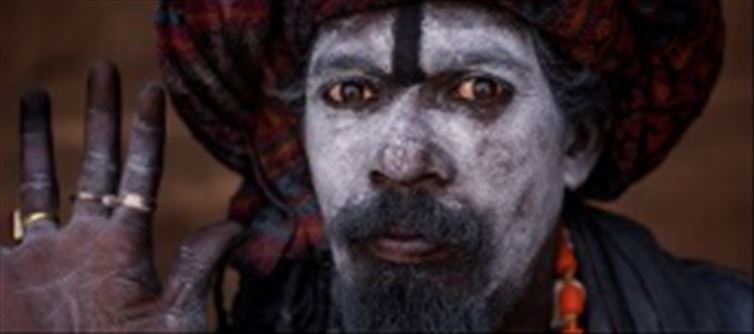
After years of meditation in the Himalayan cold, he says, "The rivers will remember what humans have forgotten," in a gravelly voice. "The plains will be flooded with the Ganga's tears when she weeps. It's just getting started.
Baba Kaalpurush is one of the oldest Aghori sadhus at this year's Mahakumbh, aged 95, or so he says. Known for their uncomfortably precise prophesies and harsh ascetic habits, the Aghoris are both feared and admired in equal measure. The Aghoris preach of common destiny, whereas the majority of holy men at the Kumbh speak of individual redemption.
Saying, "I've walked these grounds for seven Mahakumbhs," he points to the huge tent city in the background. "This time, the indicators are different. New songs are being sung by the crows at the burning sites. The deceased are more agitated.
His predictions, given during a night without a moon, provide a nuanced picture of the years to come. His remarks bear the weight of decades of solitary observation and old Tantric traditions, in contrast to the hazy prophecies of contemporary mystics.
According to him, "The earth's breath is changing," as he sketches holy symbols in the ash next to him. "Cities will recall that they were constructed on borrowed ground when the rivers shift their paths. What people consider permanent will change during the next four years.
Taking on Contemporary Skepticism
Context is provided by Dr. Rajendra Prasad, a cultural anthropologist who has spent twenty years researching Aghori customs: "Historically, the Aghoris' predictions have combined profound spiritual understanding with environmental observation. Using alterations in crow behavior at cremation sites, an Aghori baba foresaw the bengal famine months before it started in 1943.
Water, both its shortage and its wrath, is a major theme in many of baba Kaalpurush's prophecies. He declares, "The mountains will give up their ice," as he looks into the night. Slowly at first, then all at once. There will be new routes for the holy rivers. Numerous temples will reappear on the planet.
However, not all of his predictions are dire. He unexpectedly switches to fluent english and states, "From the ashes of the old ways, new understanding will emerge," exposing his academic background prior to deciding on the Aghori path. "What the middle generations forgot will be remembered by the younger generation. They'll regain their ability to interpret the sky.
Time-Tested Wisdom
More Aghoris come out of the darkness as midnight draws near, congregating around their elder's fire. Their presence changes the cremation site into a parliament of shadows, where urgent warning and age-old wisdom collide.
"We don't make prophecies to frighten," said a younger Aghori who goes by the name Mahakal, explaining their purpose. We see, so we talk. Spending decades in meditation, observing the weather, and living among the dead might reveal patterns that others overlook.
The most notable forecast made by baba Kaalpurush relates to the Mahakumbh itself. He adds, "This gathering will change," as he picks up a handful of ash. "The waters are flowing. The Sangam will eventually relocate. Today, where there is a desert, the next generation will celebrate Kumbh.




 click and follow Indiaherald WhatsApp channel
click and follow Indiaherald WhatsApp channel